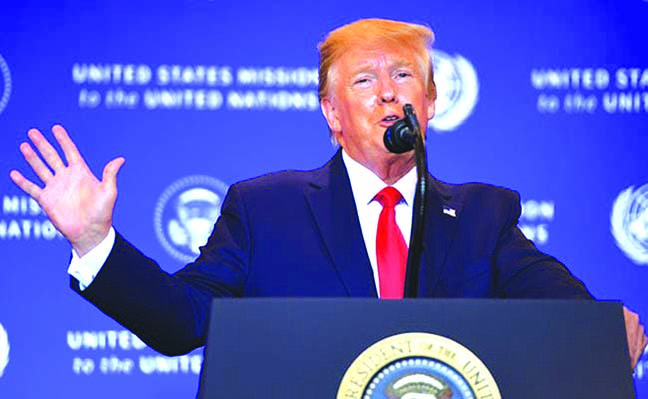
The Washington Post :
President Donald Trump’s dogged refusal to acknowledge Russia’s interference in the 2016 election and his embrace of bizarre conspiracy theories threatens to imperil the security of the 2020 contest.
That’s the warning from election security advocates and former officials who see the president’s failure to firmly acknowledge or condemn Russia’s hacking of the Democratic National Committee and other election interference as a signal that similar interference next year would be tolerated.
“It sends a message to foreign adversaries that the environment in the United States is very conducive to interference because you have the president muddying the waters at the top,” said Thomas Rid, a professor of strategic studies at Johns Hopkins University.
Trump’s stance, they said, could hurt U.S. defenses by signaling to state and local election officials that alarms raised by the Department of Homeland Security and other agencies are actually overblown. And it could damage Americans’ faith in the election by signaling the White House isn’t concerned about the security of voters’ ballots.
Americans are already widely worried elections aren’t safe from hacking. Less than half believed election systems were secure before the 2018 midterms and Democrats were more concerned than Republicans, according to late 2018 data from the Pew Research Center. Confidence grew after the midterms went off without clear evidence of successful foreign interference, with 65% of Americans saying they thought the election were secure, Pew found. But government officials warn 2020 will be a far juicier target, which could raise public anxiety.
“Democracies depend on voters’ faith that elections are fair and when the White House either diminishes the unanimous conclusion that Russia interfered in 2016 or when it amplifies conspiracy theories, that can have very negative impacts on voter confidence,” David Becker, executive director of the Center for Election Innovation and Research, told me. The warnings come as the Trump administration is increasing efforts to prevent and punish Russia for its interference – but without much visible support from the White House.
The Treasury Department imposed new sanctions on a Russian oligarch and six employees of an infamous troll farm yesterday for efforts to influence the 2018 midterms and the National Security Agency is today launching a new cyberdefense directorate charged, in part, with creating a more nimble defense against election hacking.
DHS’s cybersecurity division, meanwhile, has installed a network of security sensors at every voting jurisdiction in the country and made protecting the 2020 contest among its top priorities.

